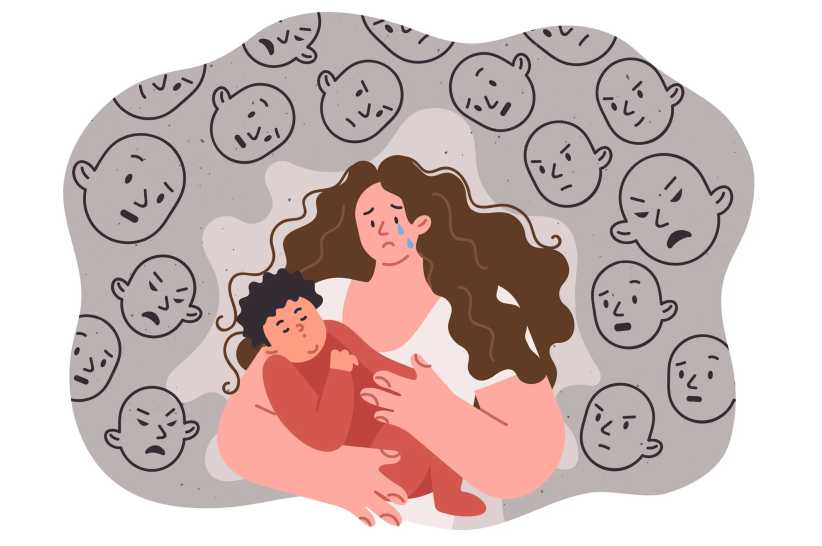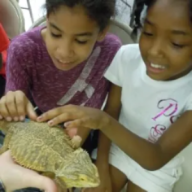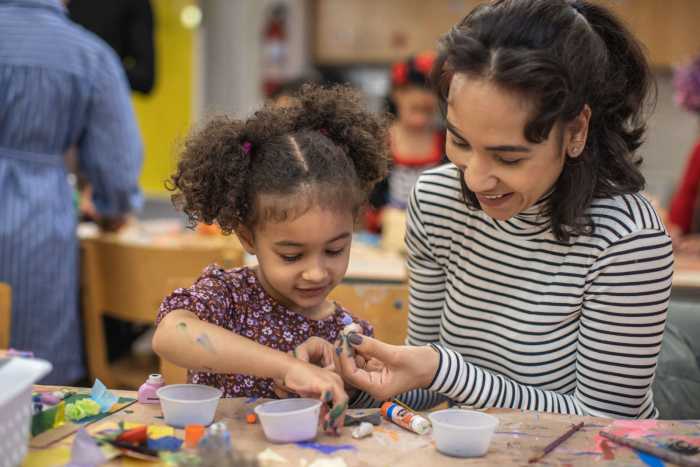 Editor’s Note: Randi Jacoby is an experienced speech pathologist who advises parents on topics in child language development and regularly speaks at the 92Y. Here, she offers some expert advice.
Editor’s Note: Randi Jacoby is an experienced speech pathologist who advises parents on topics in child language development and regularly speaks at the 92Y. Here, she offers some expert advice.
As a mother of three with 30 years of experience in the field of speech pathology, Randi Jacoby understands the anxiety parents may feel regarding their child’s development. “It’s my goal to allay their fears and to explain that for the average child, speech and language development will occur naturally,” Jacoby says. However, she also concedes that it’s only natural to compare your child to their peers and to wonder if they’re on target. Unlike most other developmental milestones, like sitting or walking, the period for the emergence of first words has a broader timeline.
Although many parents may become concerned with their toddler’s capacity to form words, the groundwork for communicative development is laid much earlier in a child’s life. “The quality of the interaction between the parent or caregiver and the infant or young child is what gives the child the motivation to begin to communicate—whether through pointing, gestures, vocally, or verbally,” Jacoby explains.
Jacoby’s advice for enhancing the quality of interactions is to be engaged with your child by turning off electronic devices, getting down on the floor, and playing with your child. It’s important to exhibit consistent eye contact and attention while following your child’s lead. By responding consistently, the child will see that their communicative attempts are acknowledged.
Maintaining a level of patience during these interactions is also important. As responses can come in many forms other than spoken words, it’s important to give a child time to express himself or herself. Build upon your child’s remarks. “Even if a child is playing with a truck on the floor and says: ‘Truck go,’ you can start by nodding, smiling, and responding: ‘Yes! The truck goes fast,’ while demonstrating with the truck what the word represents,” Jacoby advises.
Jacoby also stresses that while using “baby words” is not recommended, speaking in “Child Directed Speech” (that is, at the child’s comprehension level) is advisable. When engaging with your child, focus on talking with them rather than at them. Explaining the process of what you’re doing can also be beneficial. Even the most basic chores can be turned into language lessons if you label the words and narrate what you do, Jacoby emphasizes. The narration will promote not only a strong vocabulary, but also an understanding of the sequence of events, thereby forming an early understanding of grammar, syntax, and storytelling.
The same holds true for reading. Jacoby recommends reading often and starting at an early age. It’s fine to repeat stories over and over if your child has a favorite, as this will lead to mastery of the story. As your child becomes more verbal, read familiar stories to them, while leaving off the ending of a phrase or sentence for the child to complete. Because speech development takes sounds, as well as words, into account, adding a sing-song melody to simple books will help attract and keep your child’s attention.
In addition to stressing the best ways to verbally stimulate a new talker, Jacoby cautions against several pitfalls to avoid. “Asking open-
ended questions to a toddler can be daunting,” she says, adding that it’s often best to ask a question requiring a “yes” or “no” response, or to let them choose between a set number of responses.
Although parents may be tempted to correct their child’s improper grammar, this practice can be detrimental to speech development. “It’s the job of the child to make mistakes in the first years,” Jacoby notes. “In my practice, I don’t tell the child that there’s a right or wrong way to say things. Instead, I model the correct form. If a child says: ‘I goed there,’ I would respond by saying: ‘Yes, I went there too!’”
On the whole, most children’s communication skills will develop steadily. However, there may be some, who for various reasons, get off to a slow start. “If your gut instinct is telling you that your child is not comprehending language or developing speech in the manner that you feel is appropriate for their age, then speak to your pediatrician and seek the advice of a licensed speech and language pathologist,” Jacoby advises.
To learn more about speech development and certain speech milestones, visit the American Speech-Language-Hearing Association at asha.org.













